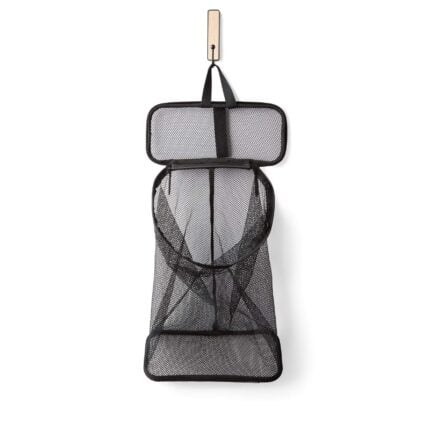The Broke Backpacker is supported by you. Clicking through our links may earn us a small affiliate commission, and that's what allows us to keep producing free content 🙂 Learn more.
As with all major cities, Cape Town is a mixed bag. The food is superb, there is great surfing, a strange abundance of penguins, and watching the city’s epic sunsets from Table Mountain is a bucket list worthy occupation.
Sadly, this is not the whole picture.
You might be wondering “Why is Cape town so dangerous?” or “Is Cape Town safe?” Well, Cape Town’s reputation is one marred by accounts of theft, muggings, assaults, car jackings and gang violence – often fuelled by poverty. Years of Apartheid have contributed to current social issues, which haven’t gone anywhere since…
Luckily for you, I have created this top tier guide to staying safe when you visit Cape Town, filled to the brim with safety tips, tricks, and informative stats. There is no better weapon against danger than knowledge, and this guide will certainly give you that!
Let’s jump into this brilliant South African city!

Photo: @rizwaandharsey
The Broke Backpacker is supported by you. Clicking through our links may earn us a small affiliate commission, and that's what allows us to keep producing free content 🙂 Learn more.
There is no such thing as a perfect safety guide, as things change quickly. The question of “Is Cape Town Safe?” will ALWAYS have a different answer depending on who you ask.
The information in this safety guide was accurate at the time of writing. If you use our guide, do your own research, and practice common sense, you will probably have a wonderful and safe trip to Cape Town.
If you see any outdated information, we would really appreciate it if you could reach out in the comments below. Otherwise, stay safe friends!
Updated December 2023

Unlock Our GREATEST Travel Secrets!
Sign up for our newsletter and get the best travel tips delivered right to your inbox.
- Is it Safe to Visit Cape Town Right Now?
- Cape Town Travel Insurance
- Safest Places to Visit in Cape Town
- 23 Top Safety Tips for Traveling to Cape Town
- How Dangerous is Cape Town to Travel Alone?
- Is Cape Town safe for solo female travellers?
- Where to Start Your Travels in Cape Town
- How Safe is Cape Town for Families?
- Getting Around Cape Town Safely
- Crime in Cape Town
- What to Pack For Your Cape Town Trip
- FAQs on Staying Safe in Cape Town
- So, is Cape Town Safe for Travel?
- Buy Us a Coffee!
Is it Safe to Visit Cape Town Right Now?
Cape Town welcomed 1,895,975 international visitors last 2022, based on Cape Town’s tourism research overview. Tourist had a generally fun vacation
Begrudgingly, yes, visiting Cape Town is safe right now. However, travellers should exercise heightened caution due to high levels of crime.
How dangerous is Cape Town? Well, as a tourist, the level of risk that you expose yourself to is low, thanks to the South African tourist police. Spots that are regularly visited by tourists (and there are a great number of cool places to go) are well guarded, but that does not mean that they can’t be dangerous, especially at night!
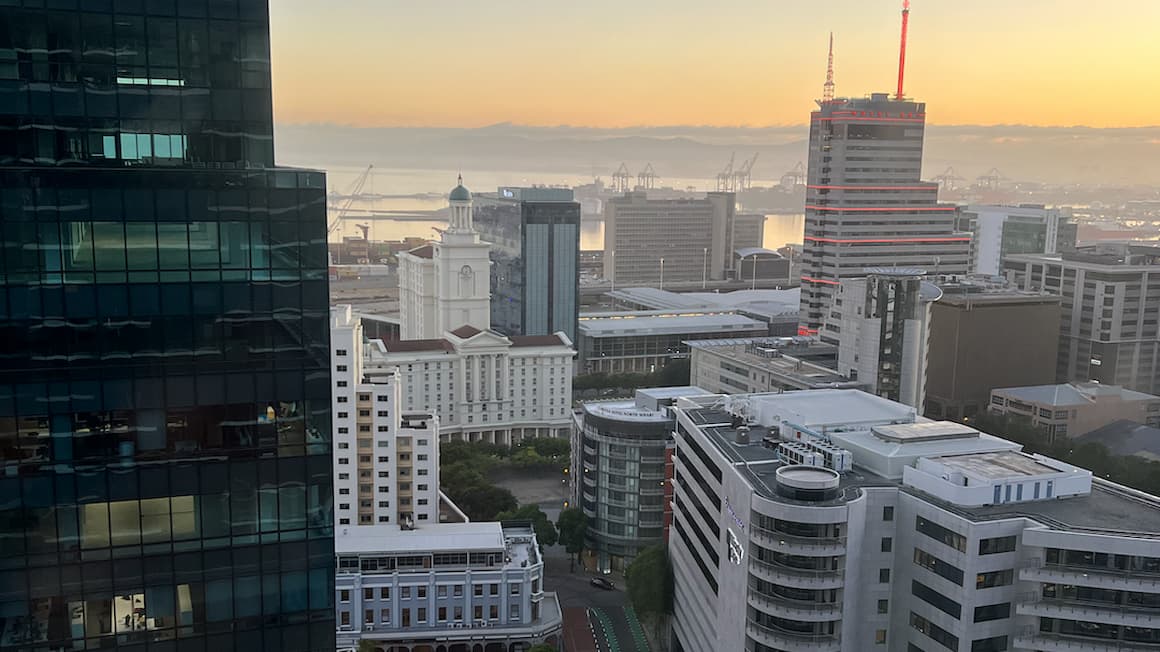
Photo: @rizwaandharsey
In answer to why is Cape Town dangerous. There is theft, in the form of muggings, scams, and pickpocketing, which remains part of the scenery as it would be in any developing city. Because of these occurrences, among others, you can’t really wander around the city too much – it is a little dangerous to do so. Thankfully, the city is safe enough to tick off a great Cape Town itinerary!
Carjackings are a particular issue in South Africa in general, and it is wise to double-check that you locked your doors before driving. When visiting Cape Town, it is always a great idea to take that extra level of precaution!
Cape Town suffered a bad water shortage in 2017/2018, so pay attention to local water regulations and rules.
There is some confusion regarding the safety of central business districts and the city centre. Some reports indicate that due to a strong police presence, the CBDs are quite safe. Others (including the UK government’s own) show that crime levels are actually unreasonably high here, especially at night.
At the end of the day, you should be cautious and take note of any travel safety tips you can get your mitts on. Talk to someone who lives here if you can!
Check out our detailed where to stay guide for Cape Town so you can start your trip right!
ALWAYS sort out your backpacker insurance before your trip. There’s plenty to choose from in that department, but a good place to start is Safety Wing.
They offer month-to-month payments, no lock-in contracts, and require absolutely no itineraries: that’s the exact kind of insurance long-term travellers and digital nomads need.
SafetyWing is cheap, easy, and admin-free: just sign up lickety-split so you can get back to it!
Click the button below to learn more about SafetyWing’s setup or read our insider review for the full tasty scoop.
Safest Places to Visit in Cape Town
Cape Town is a large city with two main areas: the Atlantic Seaboard and the City Bowl. Divided by the iconic Table Mountain, these areas are subdivided into different neighbourhoods and areas. If you’re worried about your safety, stay in one of the following areas.

Photo: @rizwaandharsey
- V&A Waterfront: Waterfront is a contained area with limited road access and plenty of CCTV cameras and security patrols. It’s home to the Aquarium, the Robben Island Museum, and is the main stop on the City Sightseeing bus routes. If you can put up with loads of tourists, this will be a great place to stay!
- Clifton and Camps Bay: These two sister neighbourhoods are an amazing option for families that want to enjoy the beauty of Cape Town while staying safe. You can find flashy houses and mansions overlooking the Atlantic Ocean, and, if you’re lucky, one or the other celebrity. The area has good transportation links to other parts of the city and it’s home to some of the best guesthouses in Cape Town.
- City Bowl: You’ll find plenty of artists, small businesses, and young entrepreneurs in the City Bowl vicinity. Garden and Woodstock, two uprising and popular neighbourhoods, are situated in City Bowl as well. Staying here means a great mix between nature, culture and lots of creativity. Great hostels too!
- False Bay: While the name belies trickery, False Bay is actually an ex-pat hub. Lots of people move here for the fantastic watersports in the area, especially in Muizenberg and Fish Hoek. Known as Cape Town’s deep south, this is a super safe place to be.
“Broke but Backpacking” is a WhatsApp community full of passionate travellers. A space to connect with like-minded backpackers and be the first to hear about exclusive deals and giveaways designed just for the community.
If you’re looking for tips, stories, and inspiration for your trip to Africa, you should 100% join the legends in our “Backpacking Africa” group chat.
Join the CrewPlaces in Cape Town to Avoid
Unfortunately, not all of Cape Town is safe. The general rule of thumb is: the poorer the neighbourhood, the more dangerous it is. We’ve listed the main no-go areas that you should avoid during your trip.
- Cape Flats: Cape Flats is known for high crime rates and should definitely be avoided. It’s situated to the southeast of the CBD area and is ruled by gangs. Since 2019, the government has stepped in and the crime statistics have improved, however, it’s still considered a no-go area for tourists.
- Langa and Nyanga: These two areas are the oldest townships in Cape Town, but also one of the poorest. Therefore, crime rates are relatively high and it’s not a safe area for tourists.
- Kraaifontein: Kraaifontein has an extraordinarily high crime rate, and is best missed if possible. Over 10000 crimes were committed here in 2020.
- Other Township Areas: These areas are on the outside of Cape Town’s popular neighbourhoods. While they offer an incredible culture, they’re not the safest place for tourists. Exploring these areas alone is not recommended. Instead, opt for having a local guide or friend show you around.
Quick tip: Plan everything in advance!
Best Cape Town Tours: Check out the coolest tours in Cape Town
Best Places to Stay in Cape Town: Check out top rated hotels and hostels in Cape Town
Best Transport in Cape Town: Book the best transport in Cape Town
Keeping your money safe in Cape Town
One of the most common things to happen to you whilst travelling is losing your money. And let’s face it: the most annoying way for this to actually occur is when it’s stolen from you.
Petty crime is pretty much a problem all over the world. The best solution? Get a money belt.

Stash your cash safely with this money belt. It will keep your valuables safely concealed, no matter where you go.
It looks exactly like a normal belt except for a SECRET interior pocket perfectly designed to hide a wad of cash, a passport photocopy or anything else you may wish to hide. Never get caught with your pants down again! (Unless you want to…)
Hide Yo’ Money!23 Top Safety Tips for Traveling to Cape Town
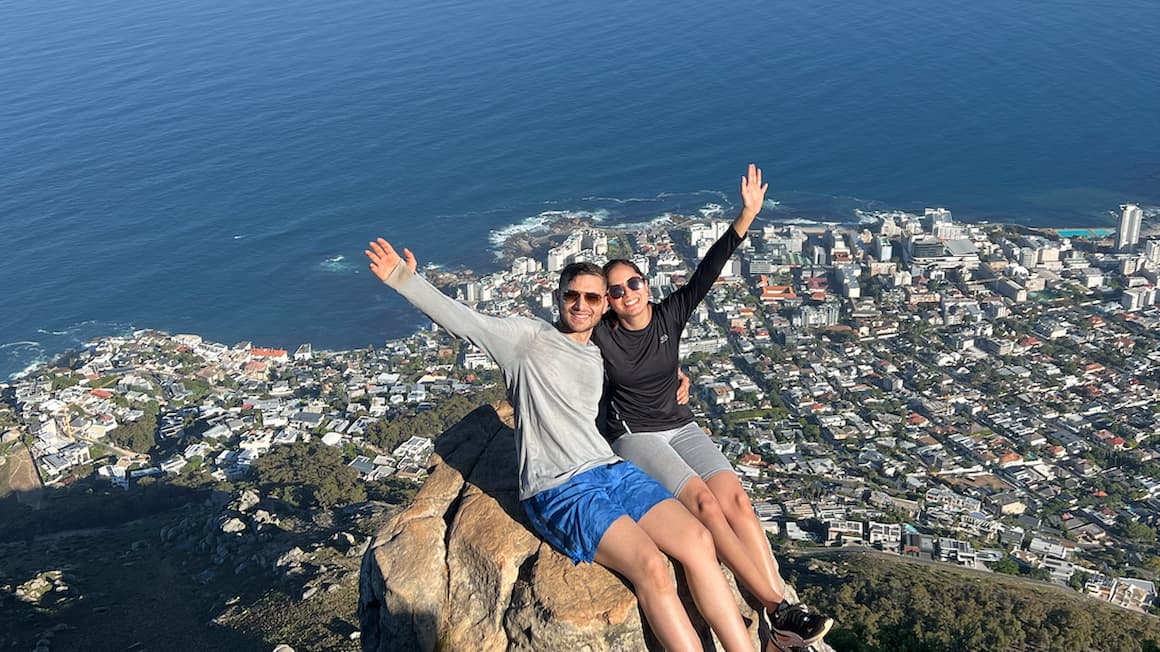
Photo: @rizwaandharsey
The best way to avoid crime is to be cautious, stay vigilant, be aware of your surroundings – and to keep in mind our insider tips for staying safe in Cape Town.
- Don’t walk around at night – crime rates are significantly higher after dark. Don’t even think about wandering around during this time. Take a taxi (more on that later).
- Don’t travel on the trains (especially at night) – Rent a car to get or use Uber.
- Avoid certain districts – do your research when visiting Cape Town and make sure your walking routes don’t take you through dodgy neighbourhoods.
- Be aware of your surroundings – for instance, wearing headphones isn’t smart. You’ll want ALL your senses to stay safe.
- Don’t walk around looking super rich – jewels, expensive clothes, looking like a celebrity. It’s an advert for thieves.
- Be alert at all times – don’t wear your headsets or walk around holding electronics like cameras or phones.
- Take a good medical kit with you – you never know when you might need it!
- Swim between flags and in nets at beaches – because of dangerous currents, and also sharks. Swim close to the shore and keep an eye out for red flags (these mean don’t swim). But enjoy!
- Be careful if you’re out hiking – Attacks do happen on the trails. Always share your location with someone you trust. Travel with a group and check to see if certain areas have higher rates of muggings.
- If you’re approached by ‘tourist police’ ignore them – these people are nine times out of ten fake and just looking to extort you. Ask for identification if you are unsure.
- Don’t leave things lying around unattended – bags, phones, wallets. These can disappear easily. Keep them on you. A large proportion of crime in Cape Town is opportunistic, so don’t give ’em a reason!
- Always keep an emergency stash of cash – Never keep all your cards/ currency in one place. And hide it all from thieves with a hidden money belt.
- Use ATMs inside – The only currency accepted in South Africa is the Rand (ZAR). Avoid carrying a lot of cash and try to pay by card. It’s just safer to do so. When withdrawing cash, go inside a mall or bank.
- Secure your belongings at your hotel – If someone rifles through your stuff, it’s best to have valuables hidden or in a safe.
- Don’t open the door to just anybody – check to make sure you know who’s knocking at your door – it may be a potential thief.
- Keep your credit cards in sight – even when they’re in use as fraud is rampant here. Hide them in a money belt.
- Similarly, don’t give your details to anyone – again, fraud.
- Practice safe sex – HIV/AIDS is a genuine issue in South Africa that affects lives daily.
- If you’re being robbed, don’t resist – most fatalities occur when people struggle too much.
- Decline if someone offers to help you with your luggage at airports – they’ll most likely just be after your luggage itself.
- If you’re heading out at night, do your research and go with people – a ‘nice’ area + more people around you = preferable.
- Copy important documents – rather than take your passport around with you, which could easily go missing.
- You’ll probably be approached by street children asking for money – it’s a personal choice if you give money, but you may find yourself overwhelmed if you seem to be giving a lot/all the time. Donate to a not-for-profit.
Make sure you do your homework, be aware of ‘no-go’ areas, and be conscious of your surroundings; practice these, and you’re bound to have a blast!

Combination Padlocks
It doesn’t get more essential than this! Not only do they allow you to lock up your backpack wherever and whenever, but they’ll also come in handy if you show up to a room without a lock. The combination style means you don’t have to worry about losing a small key either!

Apple Airtags
This really might be one of the best products Apple has ever made – the peace of mind it will give you when you inevitably have to check a bag is worth the price tag. I’ve found them to be super helpful and reliable, and you can put them in so many different things

Samsung Galaxy Smart Tags
The same epic concept, except for Androids
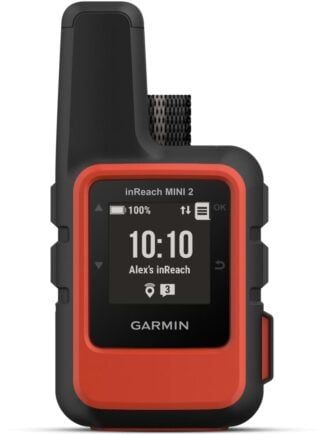
Garmin inReach Mini 2
This little satellite communication device is a must if you plan to get off the beaten path. It allows you to stay in touch with family and friends even if there’s no cell service, AND it has a SOS feature that can be activated anywhere. It even gives weather updates, a literal lifesaver when off grid.
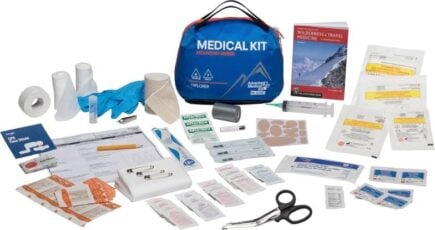
First Aid Kit
A good first aid kit should always be on your packing list, even if you’re just headed to a resort. It’s good to fill it with essential medicines as well as equipment, you never know when you’ll be caught out!
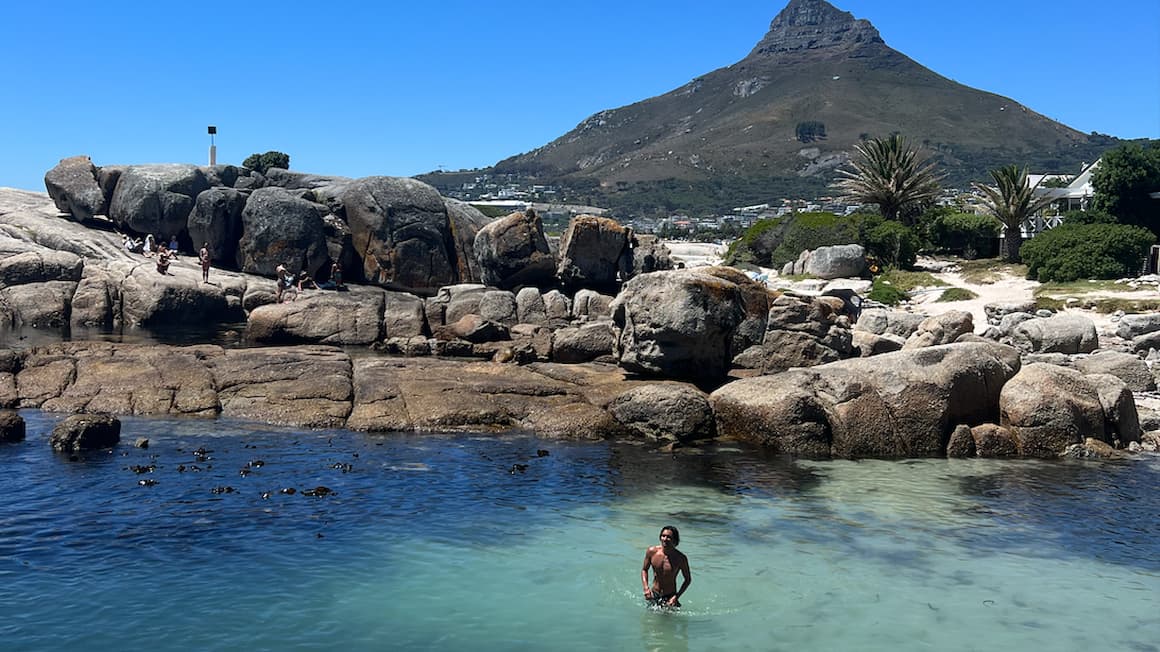
Photo: @rizwaandharsey
You’ll be pleased to know it’s safe to visit Cape Town alone. Of course, travelling by yourself anywhere in the world comes with its problems. Solo travellers are often easier targets for thieves and can be more susceptible to attack. If you follow our Cape Town safety tips, you should be fine!
Travelling around Cape Town Alone – Tips and Pointers
- Staying in a hostel in Cape Town with solid reviews, a good social atmosphere, and a good location is a good step towards staying safe as a solo traveller in Cape Town.
- Going on a well-reviewed walking tour, or any other sort of tour – maybe one put on by your hostel – is a good way of getting acquainted with the city.
- Staying with a local at a homestay or guesthouse is another good way to get some perspective. Not only will you learn about Cape Town (and South Africa) but also get a good grip on how to get around the city.
- Listen to advice from locals. If you are advised to avoid certain areas or activities alone, do some additional research with their advice in mind before making your final decision on the destination or activity.
- Always let someone know where you are. You don’t want to go missing without anyone noticing.
- Make sure you know where you’re going, how you’re getting there and how you can get back independently.
- Ultimately, do your research. Our tips are a good place to start, but the different districts of Cape Town are a sphere of knowledge that need special attention.
Is Cape Town safe for solo female travellers?
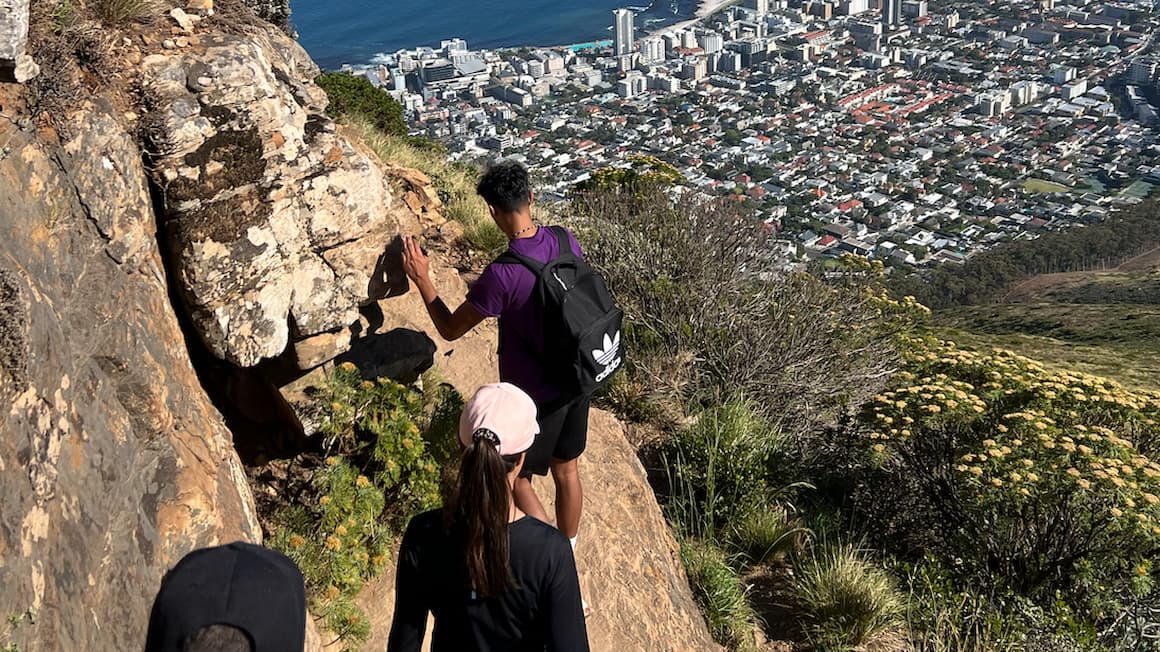
Photo: @rizwaandharsey
With a high crime rate and the ever-looming threat of rape (South Africa as a country has been called the “rape capital of the world”), Cape Town might not seem like the best place to be heading as a solo female traveller.
In defiance of these dangers, there are still plenty of female travellers who go backpacking in Cape Town. Staying safe just means extra work as a female solo traveller. Lame but necessary.
Travelling to Cape Town as a Woman – Tips and Pointers
- Take taxis arranged by your hostel or through an app. It’s not worth taking the risk when it comes to walking around at night, or even just after sunset.
- Meeting other travellers is a good idea, so find a place to stay in Cape Town with good views, a good vibe and some female-only dorms (if you fancy it). Talking to other female travellers is good since you can share tips on travelling, which can only ever be a positive thing.
- When you’re walking around by yourself, be confident. Looking unsure of your surroundings makes you seem like an easy target.
- Not everywhere in the city is shady. Do your research, and get out of the main touristed areas – Bo-Kaap is a wonderful, trouble-free district full of cool, colourful houses.
- If you want to go out partying, maybe stick to your own hostel bar. If you do go out (with people and while using taxis), watch your drink and don’t take drinks offered by strangers.
- Ask the staff at your hostel about the local area. The more you know, the safer you’ll be.
- Let people know what your plans are. If you go out hiking or even just on a guided tour, having someone know your whereabouts s better than nobody knowing where you are for the day.
- Try to fit in a little more and dress like a local.
- Avoid being on isolated beaches by yourself, any time of day. Muggings – or worse – can happen.
Where to Start Your Travels in Cape Town
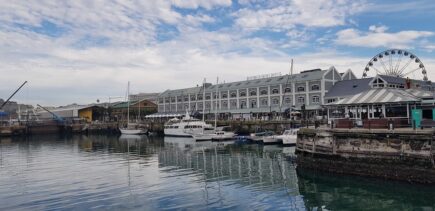
V&A Waterfront
V&A Waterfront is Cape Towns safest and most popular neighbourhood.
How Safe is Cape Town for Families?
If you’re travelling with your loved ones it’s perfectly normal to be wondering how safe is Cape Town South Africa? Cape Town receives all kinds of tourists, many of these being families rather than intrepid backpackers. As such, we’d say Cape Town is absolutely safe for families.
Chances are you’ll be staying in a more visited area, and will be doing more touristy things than the average backpacker. This already makes the situation much safer for you, and it should be easy to fully experience Cape Town.

Photo: @rizwaandharsey
With regards to specifics, you’ll want to pay extra attention to your children if you let them go swimming, due to strong currents and sharks. Normally, there will be a lifeguard or shark spotter on the beach, but don’t count on this!
Don’t let kids wander around streets themselves, and stick to the ‘good’ bits of town. Crime risks are low in large parts of Cape Town but can rise if you head into the slums or poorer parts of town. Don’t do that really uncool tourist thing of visiting one of the underprivileged parts…
Getting Around Cape Town Safely
There are a few public transport options in Cape Town. Although not as safe as Uber, they’re still a great way to get around the city.
- Minibus Taxis: Very cheap, but they also come with a lot of flaws. They’re often overcrowded, the cars themselves are not maintained, and the drivers have a tendency to disobey all traffic laws.
- MyCiTi: It’s the bus service in Cape Town, and it is much safer. As opposed to minibus taxis, these are actually like any ‘normal’ city bus that you might get in. We approve of this mode of transport.
- Metrorail: As we mentioned earlier, this is not the sort of thing you’ll want to be travelling around on at night (like with anything in Cape Town).

Photo: @rizwaandharsey
While the roads in Cape Town are generally good to drive on, carjackings and smash-and-grabs make it a bit more dangerous than other places. Since these happen almost exclusively at red lights, people often run reds to mitigate the risk. Lights don’t mean everything here!
Uber is safe in Cape Town. In fact, everybody uses Uber in Cape Town. Even if it’s a 2-minute journey on foot, even if it’s just 100 metres to the next venue, Cape Town residents do not walk – they Uber (or taxi).
Stick to reputable companies that have official methods of contact. One company that is certainly worth your time (and money) is Excite Taxis, although there are plenty of others. Even when using these legitimate services, take a photo of the driver’s ID. This helps in case you have any problems.
Crime in Cape Town
Crime in Cape Town is sadly a large problem. In 2022, the murder rate was 66.36 per 100,000 inhabitants, which is in a similar bracket to some of the most dangerous cities in South America (like Fortaleza or Belem). The U.S. government travel authority has put a level two rating on South Africa as a whole, due to the high crime rate. Thankfully, crime against tourists is pretty low, but the recent drought and water crisis have put everyone on edge, including the inevitably white middle class.
There have been increasing reports of tour guide scams, so if someone offers, don’t take them up on it unless you know they’re kosher! Try to travel with a friend if you can, and be wary of criminals posing as officials.
Laws in Cape Town
Always carry a copy of your passport and visitor permit with you. Lock the real thing up somewhere safe! The use of cannabis for private consumption is legal here, but it is illegal to buy or sell. You should watch out for current water usage regulations, which have been relaxed since 2018, but may still be present.
What to Pack For Your Cape Town Trip
Everyone’s packing list is going to look a little different, but here are a few things I would never want to travel to Cape Town without…
Hanging Laundry Bag
Trust us, this is an absolute game changer. Super compact, a hanging mesh laundry bag stops your dirty clothes from stinking, you don’t know how much you need one of these… so just get it, thank us later.

Head Torch
A decent head torch could save your life. If you want to explore caves, unlit temples, or simply find your way to the bathroom during a blackout, a headtorch is a must.

SIM card
Jetpac stands as a premier eSIM service provider, catering specifically to the mobile internet needs of travellers.

Monopoly Deal
Forget about Poker! Monopoly Deal is the single best travel card game that we have ever played. Works with 2-5 players and guarantees happy days.
Money Belt
This is a regular looking belt with a concealed pocket on the inside – you can hide up to twenty notes inside and wear it through airport scanners without it setting them off.
FAQs on Staying Safe in Cape Town
For a travel destination like Cape Town, there are lots of different things you have to consider when it comes to safety. We’ve listed the most common question, answers and facts to make your trip as easy as possible.
So, is Cape Town Safe for Travel?
Yes, we’d say Cape Town is safe for travel as long as you use your common sense and do your research. It is an amazing town, one that is often worth the risks. Ask any local and, regardless of statistics, they’d probably say it’s safe to live in Cape Town, at least, for people with good sense.
Bad things can happen anywhere, but when it comes to staying safe in Cape Town you can lessen your chances of being a victim by simply being vigilant. Pay attention to your surroundings – that’s our number one rule.
Follow our advice, fellow broke backpackers, and you’ll find Cape Town a much more manageable and fun place to be.

Photo: @rizwaandharsey
Looking for more info on traveling to Cape Town?
- Let me help you choose where to stay in Cape Town
- Swing by one of these fabulous festivals
- Don’t forget to add an epic national park to your itinerary
- Get inspired by these EPIC bucket list adventures!
- Plan the rest of your trip with our fantastic backpacking Cape Town travel guide!
Disclaimer: Safety conditions change all over the world on a daily basis. We do our best to advise but this info may already be out of date. Do your own research. Enjoy your travels!
Buy Us a Coffee!
A couple of you lovely readers suggested we set up a tip jar for direct support as an alternative to booking through our links, since we’ve decided to keep the site ad-free. So here it is!
You can now buy The Broke Backpacker a coffee. If you like and use our content to plan your trips, it’s a much appreciated way to show appreciation 🙂



